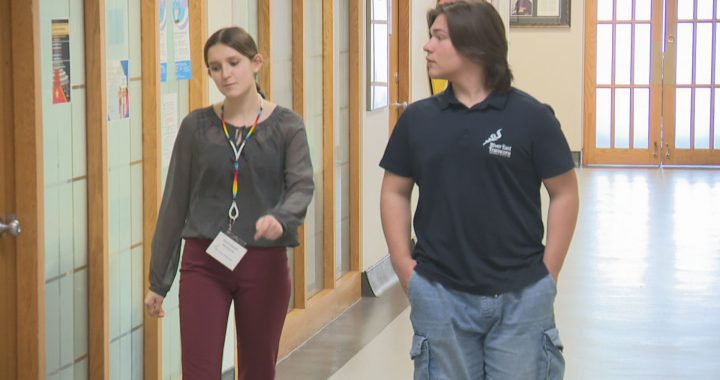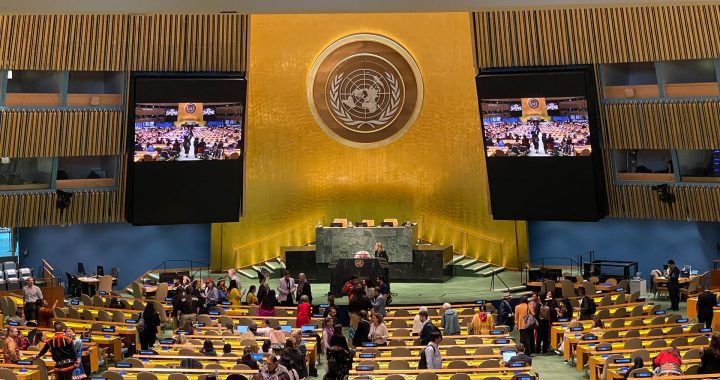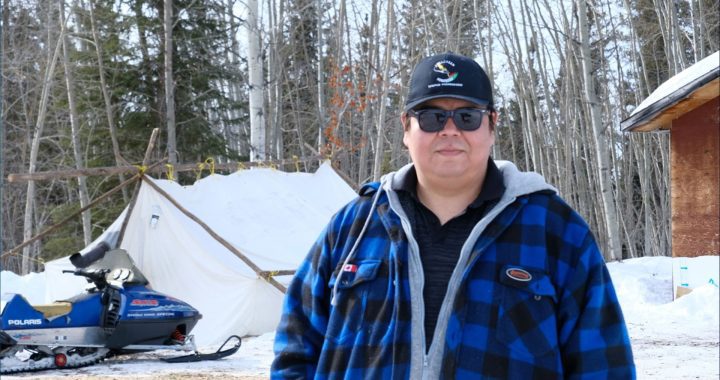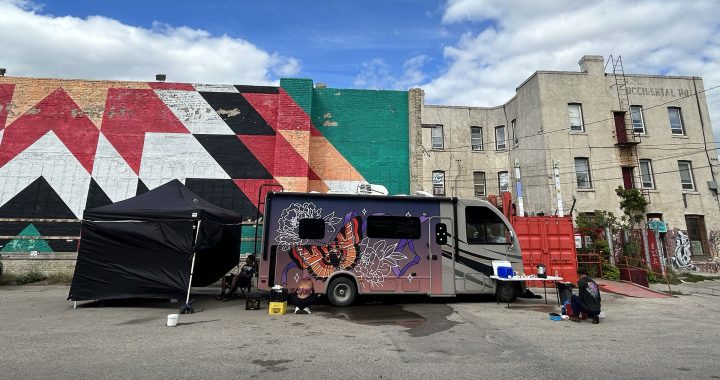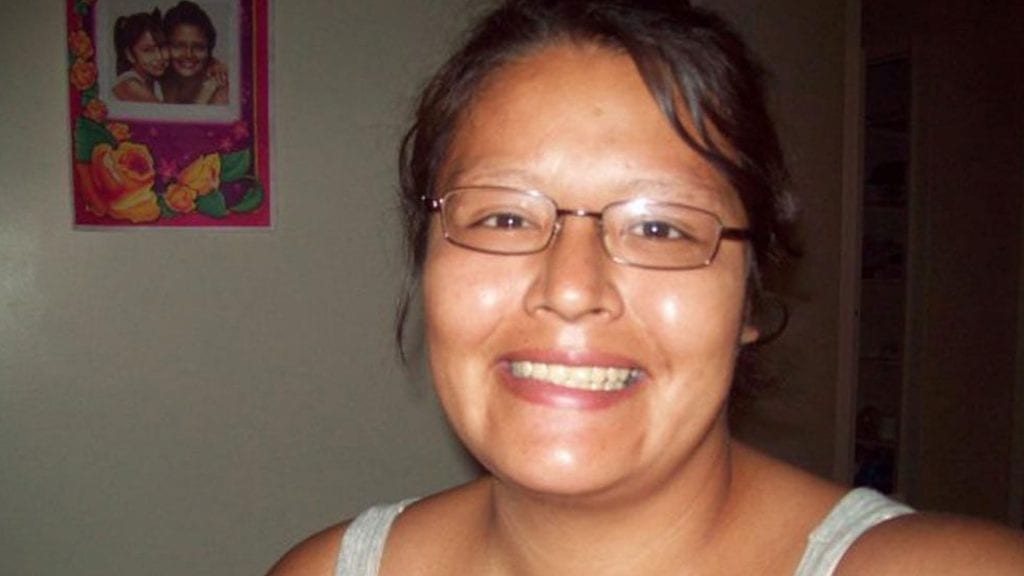
Barbara Kentner died in 2017.
Relatives of Barbara Kentner who died after being assaulted with a trailer hitch in Thunder Bay, Ont., told a court they’d lost an irreplaceable loved one as well as a sense of personal safety with her passing.
Kentner’s daughter and sisters spoke of their heartache and fear in statements read by lawyers during a sentencing hearing Wednesday for Brayden Bushby, who was found guilty of manslaughter last year.
Bushby threw a trailer hitch at Kentner from a moving vehicle in January 2017 after spending a day drinking with friends. The 34-year-old woman died months later and the trial judge found Bushby could have forseen the fatal outcome of his actions.
On Wednesday, court heard that Kentner’s daughter became depressed and had difficulty completing high school after her mother’s assault and subsequent death.
Serena Kentner said she struggled through cancer treatment without her mother by her side.
“Now when I’m out and about and see other people with their mother, it makes me mad because I wish she was here,” she wrote in a statement read out in court.
“She was my best friend, I was able to tell her everything and anything. Now that she is gone, it is just me.”
Bushby, who did not testify at the trial, apologized in court to Barbara Kentner’s family and friends.
“It is my fault and my fault only what happened to Ms. Kentner. She did not deserve what happened to her,” he said.
“I want everyone, especially the Kentner family, to know that I am very truly sorry for my actions.”
One of Kentner’s sisters directly addressed Bushby in her statement, saying his attack robbed her sibling of her future.
“She may have been just another Indian to you. To me, she was a light in the darkness. May you forever feel that shame,” Cheryl Kentner wrote.
Two other sisters said what happened had made their family fear leaving home alone. The said the family has not been able to attend counselling during the lengthy court process out of fear that anything said there could be used against them.
The judge-alone trial heard that Bushby said “I got one” after striking Barbara Kentner and that he laughed after throwing the hitch. Court heard that Kentner required surgery for a severe internal injury and her health declined before her death in July 2017.
The Crown is asking for a sentence of between eight and 12 years for Bushby.
Lawyers argued that Justice Helen M. Pierce should consider Kentner’s vulnerability as an unsuspecting victim walking outside at night and the dangerous weapon among aggravating factors in the assault, as well as witness accounts that he laughed after the assault.
Crown lawyer Trevor Jukes argued that Bushby intended to attack women on the night of the incident, pointing to witness testimony that Bushby told friends he wanted to “drive around and yell at hookers” that night.
Jukes said it’s important to keep in mind that the sentence Brayden Bushby receives is not a reflection on the value of Kentner who was loved by her family and community.
The Crown said it did not have enough evidence to argue beyond a reasonable doubt that the crime was motivated by bias against Indigenous people, but the documented history of racism in the city should be considered.
The defense is arguing for a four year sentence, minus one month to take into account the 18 days he has already spent behind bars.
Bushby’s lawyers said “this case has garnered a level of notoriety we can’t ignore” and added “Bushby should not be made an example of or become a scapegoat for the crimes of his community,” referring to the reputation Thunder Bay has as being one of the most racist cities in the country.
Earlier in the day, while speaking in court, Bushby said “whatever the sentence is, I will carry the guilt for the rest of my life.”
Nishnawbe Aski Nation’s Oshkaatisak (All Young Peoples) Council issued a statement earlier in the day extending prayers to the family and friends of Kentner and offered their condolences.
In it’s statement, the Oshkaatisak said “we are concerned for the well-being and safety of all youth, their friends, and families. NAN holds many events in Thunder Bay and people who attend should be able to feel safe and secure when they come to town. Visiting Thunder Bay should bring feelings of happiness and joy, not anxiety and fear.”
The statement went on to say “Brayden Bushby’s actions leading to the death of Barbara Kentner have affected the entire community, and each of us in very personal ways. Many have perceived Bushby’s violent actions as motivated by hatred towards Indigenous peoples. Consequently, we are living in even greater fear of discrimination, gender and racial violence. When visiting Thunder Bay, some Youth Council members will not leave their hotel and are afraid to go out. Many are afraid to walk alone or use public transportation.
“Violence against women and all Nishnawbe people in Thunder Bay needs to be addressed rightfully and immediately.”
The case has drawn criticism on how the justice system deals with cases involving Indigenous victims after Bushby’s second-degree murder charge was downgraded to manslaughter and aggravated assault last fall.
The trial heard the change was made because physical distancing restrictions during the COVID-19 pandemic made a jury trial impossible in Thunder Bay.
Audrey Gilbeau with the Nokiiwin Tribal Council, which serves First Nations people in the Thunder Bay area, described how Indigenous people in the city frequently report similar assaults with thrown objects. She said the problem is so widespread that people try to hide their features when walking down the street.
Gilbeau told the court how the attack on Kentner heightened fears in the community.
“Our community believes that racism killed Barbara. When racism is left unchecked, the consequences lead to death,” Gilbeau told the court.
She said she hoped the guilty verdict in Bushby’s case could set a precedent in the legal system by “(putting) value on Indigenous lives,” and sending a message that “in some cases, you can no longer get away with killing an Indigenous person.”
Pierce is expected to deliver her sentencing decision on May 4.
This story was updated Feb. 17 at 20:18






